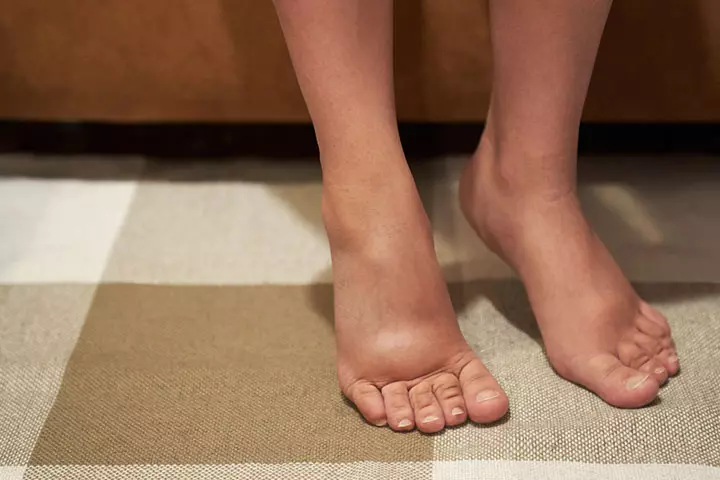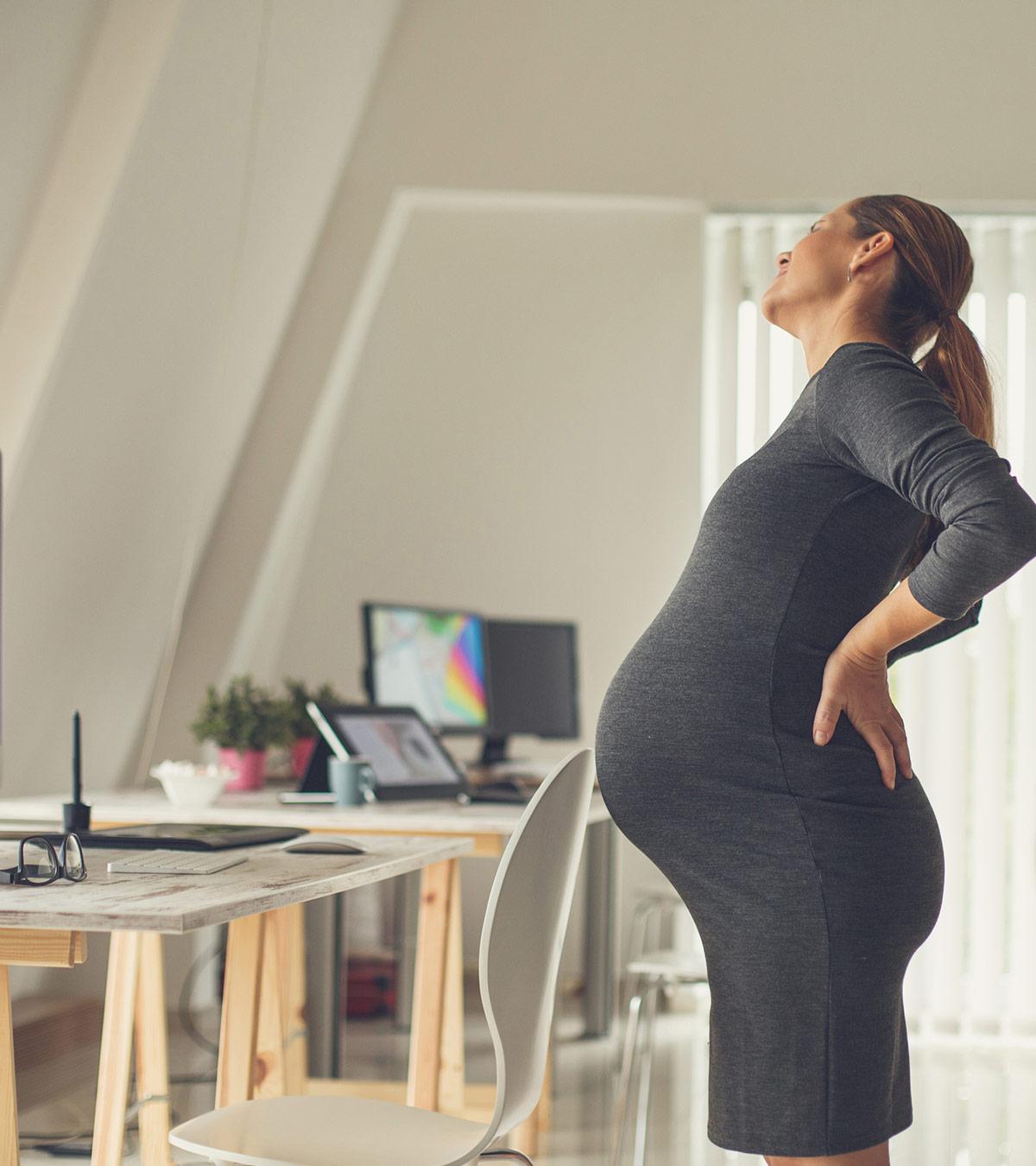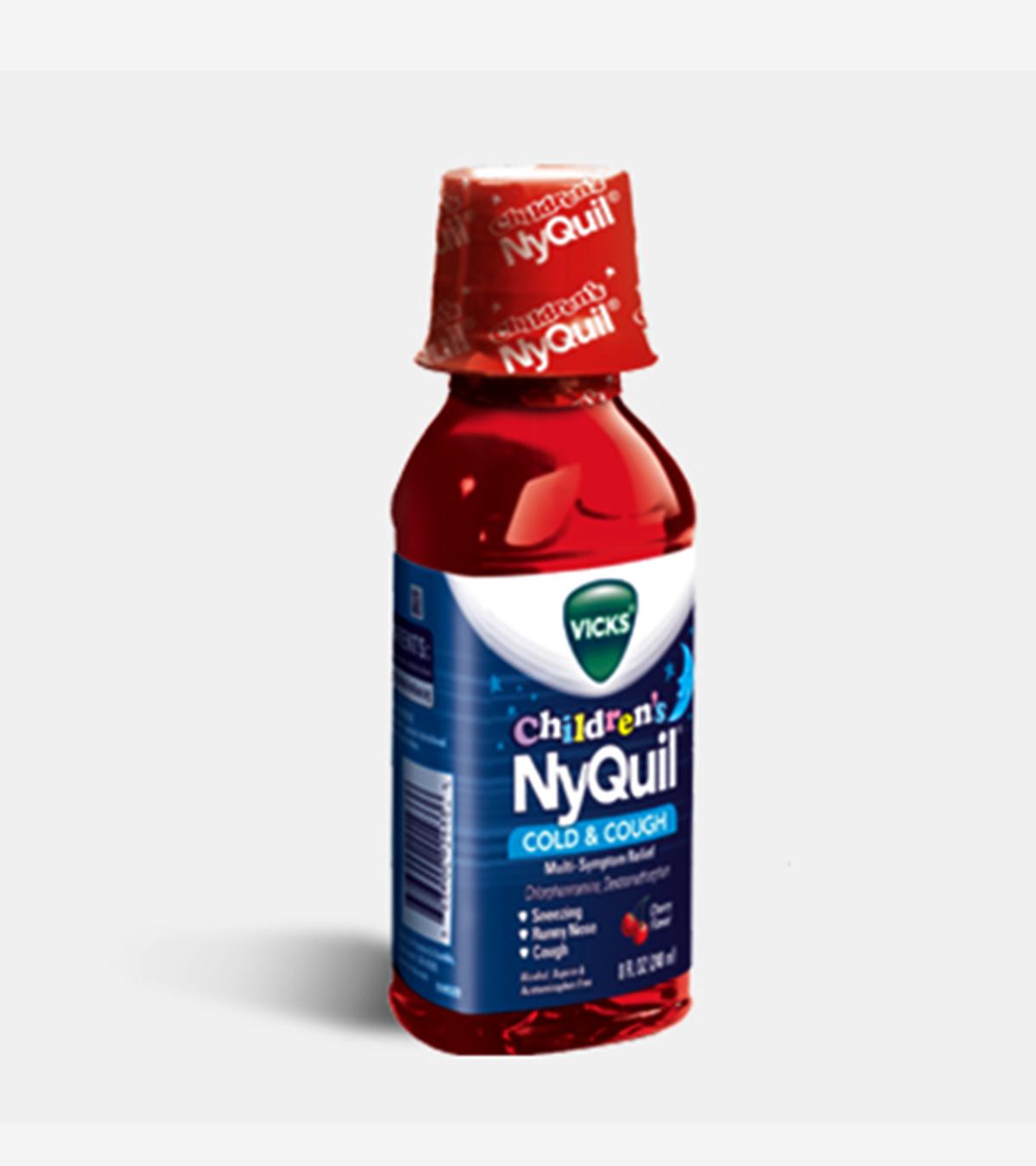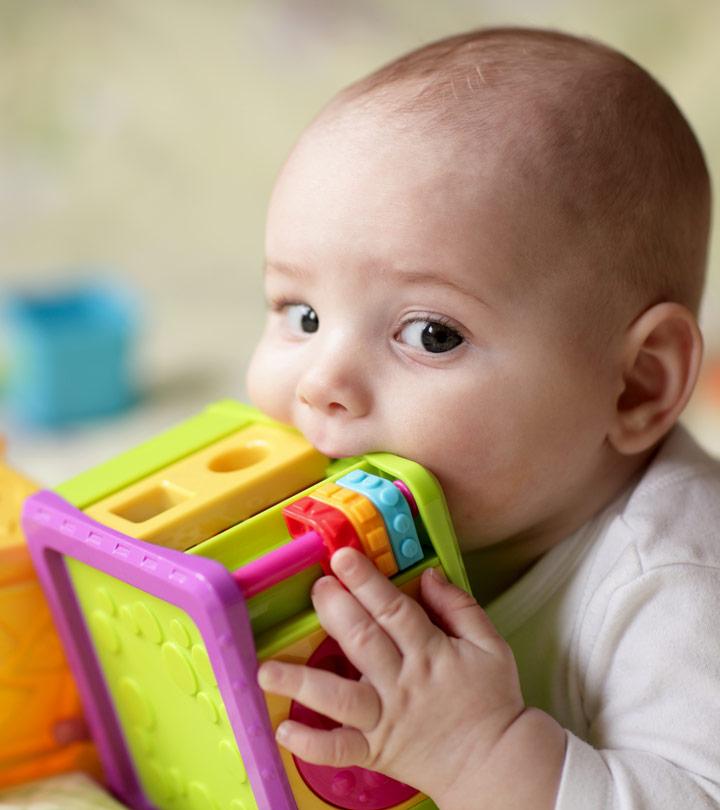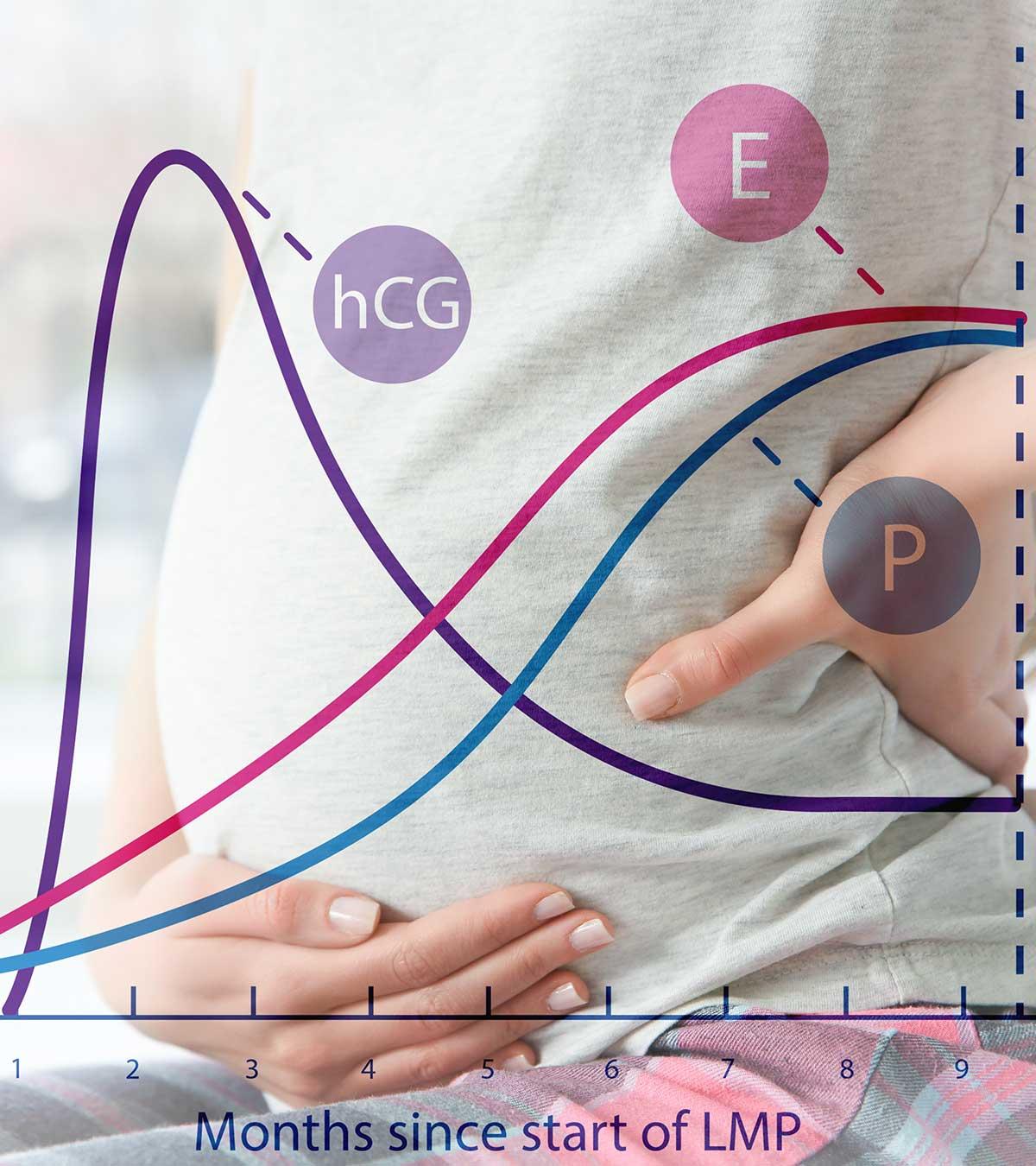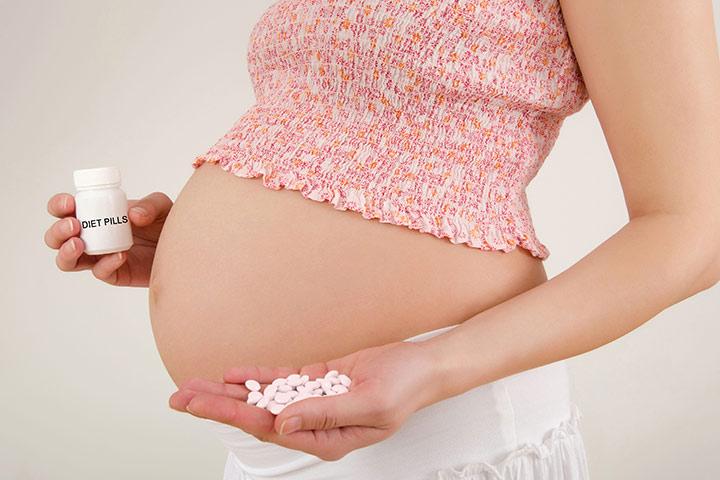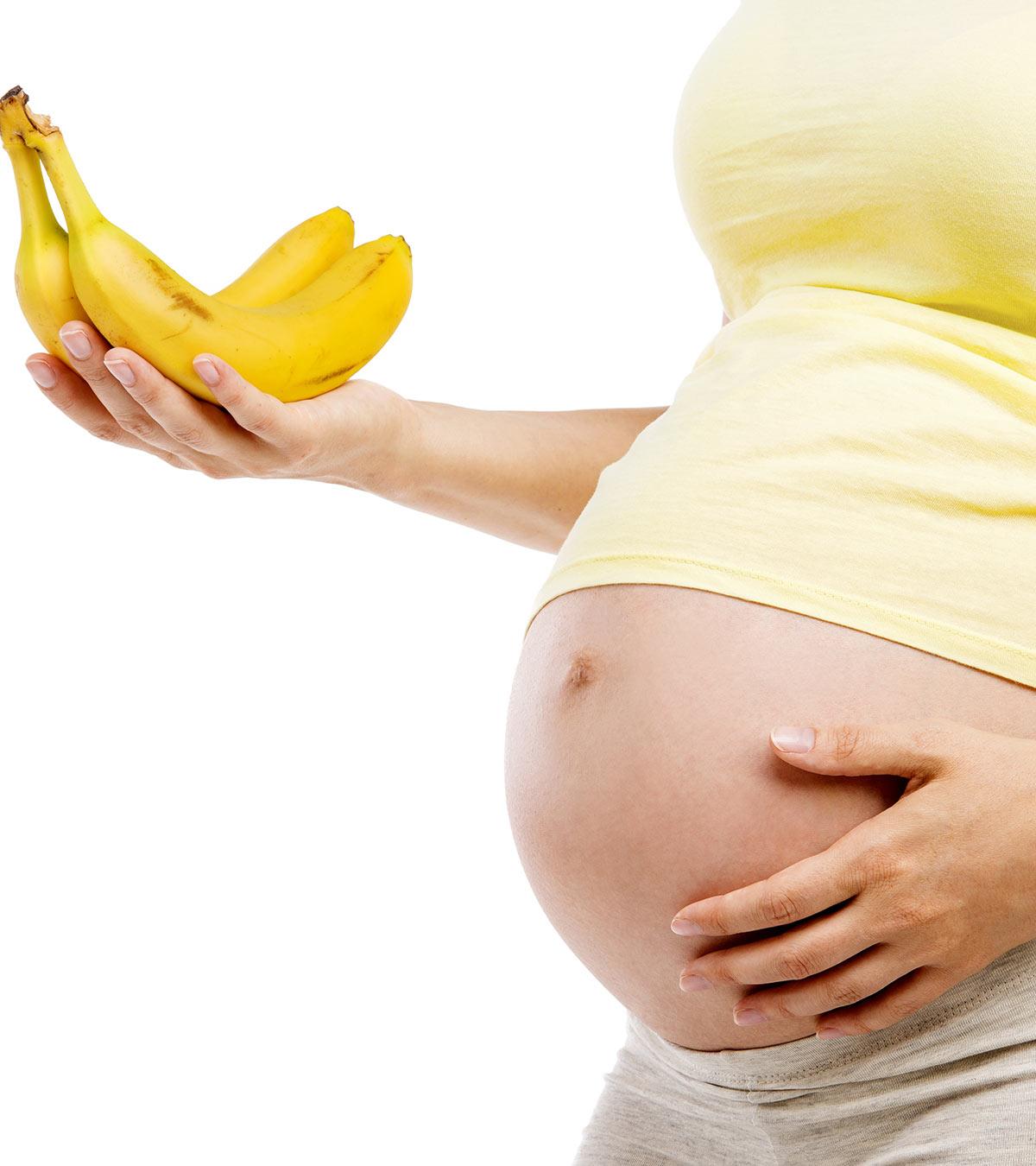
Image: Shutterstock
Hyperthermia or overheating in pregnancy can be harmful to you and your unborn baby.
In a pregnant woman, a rise in base (internal) temperature to more than 39°C (102°F) (maternal fever) is regarded as dangerous to fetus growth (1). Therefore, if you develop a fever, dehydration, heatstroke, or tiredness while pregnant, you should consult a doctor immediately. In this post, we tell you why your body temperature rises during pregnancy, how it affects you and your baby, and how to keep it under control.
Is Overheating During Pregnancy Common?
Image: IStock
It may be normal for you to feel hot during pregnancy (2). As your baby grows, your body is likely to use more energy. Certain environmental factors, such as working in hot environments or specific work conditions, can elevate your core body temperature, potentially causing heat stress (3).
Even though our body has thermoregulation ability, extreme overheating is a cause of concern, and you need to be careful, especially when going out in the hot sun or while doing strenuous activities on a hot day.
How Do You Know If Your Body Is Overheated?
You may feel distinctly unwell while you feel the heat within your body. The possible symptoms of overheating are (4):
- Warm skin
- Headache
- Dizziness
- Nausea
- Muscle cramps
Image: IStock
You may also be at a higher risk of developing heat exhaustion, heat stroke, and dehydration (5). You should see a doctor if you have these symptoms. Additionally, dizziness may increase the risk of complications such as placental abruption and preterm labor, necessitating early delivery.
 Quick fact
Quick factCauses Of Overheating In Pregnancy
There are limited studies on the causes of overheating during pregnancy. The possible reasons include:
- Your blood volume increases by nearly 50% by the time you reach the 34th week of gestation (5). You might feel warmer as your blood vessels expand and move closer to the skin’s surface.
- Your heart works harder and pumps 20% more blood by the time you reach your eighth week (5).
- Your metabolic rate increases during pregnancy to create more energy for you and your unborn baby. This may also cause a high body temperature (6). A systematic review of resting energy expenditure (EE) during pregnancy was conducted by multiple institutions. The review findings unveiled that the EE increased from 6.4% to 29.6% during the transition from early to late pregnancy.
- The body heat shed by the growing fetus is usually absorbed by the mother. This primarily occurs in your third trimester. The increased skin temperature may, therefore, make you feel hot (7).
Some other general activities that could raise your core body temperature are (8):
- Exercising in hot weather or for a prolonged period
- Soaking in hot baths or saunas
Image: IStock
- Using heat pads or electric blankets
Possible Risks Of Overheating During Pregnancy
Overheating can increase the risk of certain eventualities.
- According to a meta-analysis of 15 studies, excessive overheating in early pregnancy is associated with neural tube defectsiCongenital disabilities of the brain, spine, or spinal cord caused when the neural tube doesn’t close completely. in babies (9).
- Overheating in the first trimester is also likely to cause miscarriage (8), but this needs further research.
- Also, the hot summer sun or weather could aggravate some conditions of pregnancy (10). It could
- intensify the already raised body temperature.
- accentuate edema (swelling) in the legs and feet.
Image: Shutterstock
- accentuate edema (swelling) in the legs and feet.
- stimulate melanocytesiSpecialized cells that produce the compound melanin, which is responsible for skin, eyes, and hair pigmentation. , causing chloasmaiA condition characterized by dark patches on the skin due to hormonal changes during pregnancy. (mask of pregnancy) (11).
How To Stay Cool During Pregnancy?
Here are some measures to keep your temperature in control, remain hydrated, and reduce exposure to heat during pregnancy (10).
- Drink lots of water every day. Drinking at least eight cups of water might keep your body cool, treat dehydration, reduce water retention, and fight constipation.
- Swimming cools down your body. Go for an occasional swim after checking with your healthcare practitioner.
- Exposure to the sun can increase your internal body temperature. Avoid frequent exposure to the sun and always use a sunscreen or wear a hat before going out in the sun.
- Take a lukewarm shower and not a cool one as it might chill your body, prompting it to create more heat.
- You may run cold water over your arms and wrists for a quick cool-down. Applying a cold compress on your neck also works.
Image: IStock
- Wear comfortable and loose clothes that breath easy.
- Carry a battery-operated fan or foldable fan to use when you feel overheated.
- If you have been exercising during pregnancy, do that in a temperature-controlled room.
- Brisk walking, water workouts (swimming), stationary bicycling, modified yoga, and PilatesiA type of exercise that aims to strengthen muscles and improve posture, balance, and flexibility. are considered safe. Avoid hot yoga or hot Pilates as they may lead to overheating (12).
- Exercise in the morning or evening, when the temperature is cooler.
- Keep your bedroom cool by keeping the windows open in the evenings and closed during the daytime.
- Place indoor plants in the house as they might cool the air and add freshness.
- Cut down on caffeine as it is known to increase blood pressure (thereby increasing the risk of gestational hypertension) and core body temperature.
- Eat cold foods such as salads, fruits, and vegetables with high water content. Reduce the intake of spicy foods as they may increase the chances of overheating in the body.
 Quick tip
Quick tipFrequently Asked Questions
1. Should I avoid exercise if I get overheated during pregnancy?
Exercising is recommended in pregnancy if not otherwise advised by your doctor. However, if you tend to get overheated during pregnancy, you may observe certain precautions such as avoiding hot yoga or hot pilates and exercising outdoors in hot and humid weather. You may exercise in a temperature-controlled room, drink plenty of water, and wear loose-fitting clothes to keep cool (15).
2. Can medications or supplements cause overheating during pregnancy?
Prenatal vitamins are not usually reported to cause overheating during pregnancy. However, if you have been prescribed thyroid medications, such as levothyroxine, it may cause heat sensitivity as a side effect (16).
3. Is using air conditioners to regulate my body temperature during pregnancy safe?
Yes, it is usually considered safe to use air conditioners to regulate body temperature during pregnancy. However, make sure you get the air conditioners in your house serviced regularly to ensure the air is clean and free from germs.
As the metabolic rate of your body and the blood pressure increase during pregnancy, it is normal to experience overheating during pregnancy. However, it might be a cause for concern if you experience signs of dizziness, dehydration, or high fever. It is advisable to drink enough water, stay in cool places, wear comfortable clothing, follow a healthy lifestyle and avoid performing activities that might stress you out and cause overheating. Consult your doctor immediately if your notice any of the concerning signs to avoid any complications.
Infographic: Preventive Measures To Avoid Overheating During Pregnancy
You may be more prone to hyperthermia while pregnant due to various reasons. However, it is essential to maintain the proper body temperature to prevent any adverse effects on your fetus. So, check out the suggestions in this infographic that might help you stay cool during pregnancy. Illustration: Momjunction Design Team
Key Pointers
- Fetal harm can result from a temperature increase exceeding 39°C (102°F).
- Signs of hyperthermia during pregnancy include warm skin, headaches, dizziness, nausea, and cramps.
- Hyperthermia during pregnancy can be caused by increased blood volume, higher metabolic rate, and heat from the developing fetus.
- Overheating during pregnancy can lead to risks such as neural tube defects, miscarriage, swelling, and chloasma.
- Ways to stay cool during pregnancy include drinking water, swimming, avoiding the sun, taking lukewarm showers, and dressing comfortably.
- Pregnant women can also stay cool by staying hydrated, wearing loose clothing, avoiding heat exposure, and eating cooling foods.
Image: Dall·E/MomJunction Design Team
Delve into this video for tips on how to take care of yourself during high temperatures and avoid overheating while pregnant.
References
1. Nicholas Ravanelli, et al.; Heat stress and fetal risk. Environmental limits for exercise and passive heat stress during pregnancy: a systematic review with best evidence synthesis; BMJ Journals (2017).
2. Pregnant this summer? Beating the heat means safety and comfort; The University of Alabama at Birmingham
3. About Heat Exposure and Reproductive Health; CDC
4. Summer heat brings special health risks for pregnant women; American Heart Association
5. Priya Soma-Pillay, et al.; Physiological changes in pregnancy; Cardiovascular Journal of Africa (2016).
6. Thomas W. Wang And Barbara S. Apgar; Exercise During Pregnancy; The American Academy of Family Physicians (1998).
7. The Third Trimester; The Johns Hopkins University
8. Pregnancy Precautions: FAQs; Brenner Children’s – Wake Forest Baptist Health
9. Moretti ME, et al.; Maternal hyperthermia and the risk for neural tube defects in offspring: systematic review and meta-analysis; Epidemiology (2005).
10. Keep Cool: Hot-Weather Tips for Pregnant Women; University of Rochester Medical Center
11. Hajira Basit, et al.; Melasma; StatPearls Publishing (2019).
12. Exercise During Pregnancy; American College of Obstetricians and Gynecologists
13. Summer heat brings special health risks for pregnant women; American Heart Association
14. Aiying Xie et al.; Relationship between food composition and its cold/hot properties: A statistical study; Journal of Agriculture and Food Research
15. Exercise During Pregnancy; The American College of Obstetricians and Gynecologists
16. Levothyroxine; MedlinePlus
Read full bio of Dr. Karishma Bhatia
Read full bio of Swati Patwal
Read full bio of Aneesha Amonz








